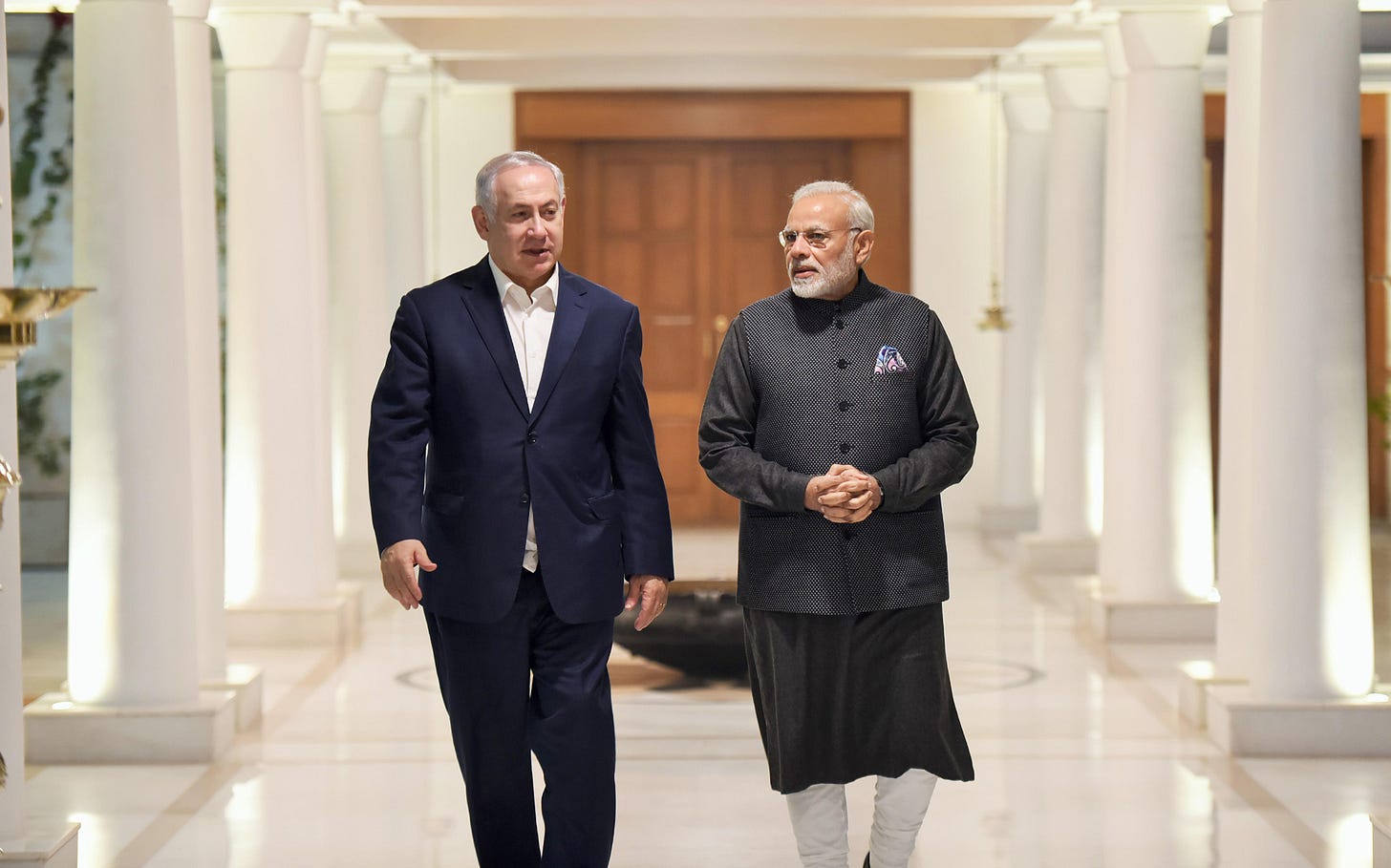When Modi Met Bibi: A More-Than-Strategic Global Alliance
In a review of Azad Essa’s recent book Hostile Homelands: The New Alliance Between India and Israel, Amrit Wilson looks at two illiberal states who feel they are on the frontline of the War on Terror

For several months the BJP’s cheerleaders have been hyperventilating over the forthcoming G20 summit to be held in India in September this year. It is being projected as a prize awarded to Narendra Modi, acknowledgement as it were, that he is a Vishwa guru or guru of the Universe, beloved – worshipped even – by all, everywhere.
In reality, the G20 is hosted in rotation by member states and 2023 happens to be India’s turn. Across the country, streets are plastered with posters of Modi with the message ‘Mother of democracy to host the G20 – let us make it a catalyst for global change. One earth. One family. One future’. In the face of ongoing genocidal attacks on Muslims and Christians by state-sponsored gangs and increased repression in Kashmir, this feels like an ominous message, suggesting both a fascistic homogenisation and the spread of authoritarian states like India worldwide with Modi and the BJP at the helm.
In the run up to the main event, G20 engagement groups and working groups on specific subjects – gender equity, development, youth and so on – are being held, each one packed with experts who are largely members of the RSS, the paramilitary right-wing Hindu nationalist organisation, or trusted Modi supporters.
The one on Civil Society is headed, for example, by Sudha Murthy, mother-in-law of Rishi Sunak, an enthusiastic follower of the Hindu far-right or Hindutva.
In May, an engagement meeting on tourism was held in Indian-occupied Kashmir, one of the world’s most intensely militarised zones. National Security Guards, Border Security Force and police forces were deployed to provide ground-to-air security cover. Delegates from the G20 walked past Kafkaesque scenes of bunkers draped in festive G20 flags and decorated in other ways while heavily armed ‘Marcos’ or Naval commandos were to be seen floating in gondolas on the iconic Dal Lake.
Azad Essa’s recent book Hostile Homelands: The New Alliance Between India and Israel, published by Pluto Press, helps us make sense of some of these scenarios by looking at an important aspect of the political and economic structures which underlie them. It reveals that increasingly, in a variety of contexts, Israel is a ubiquitous presence.


